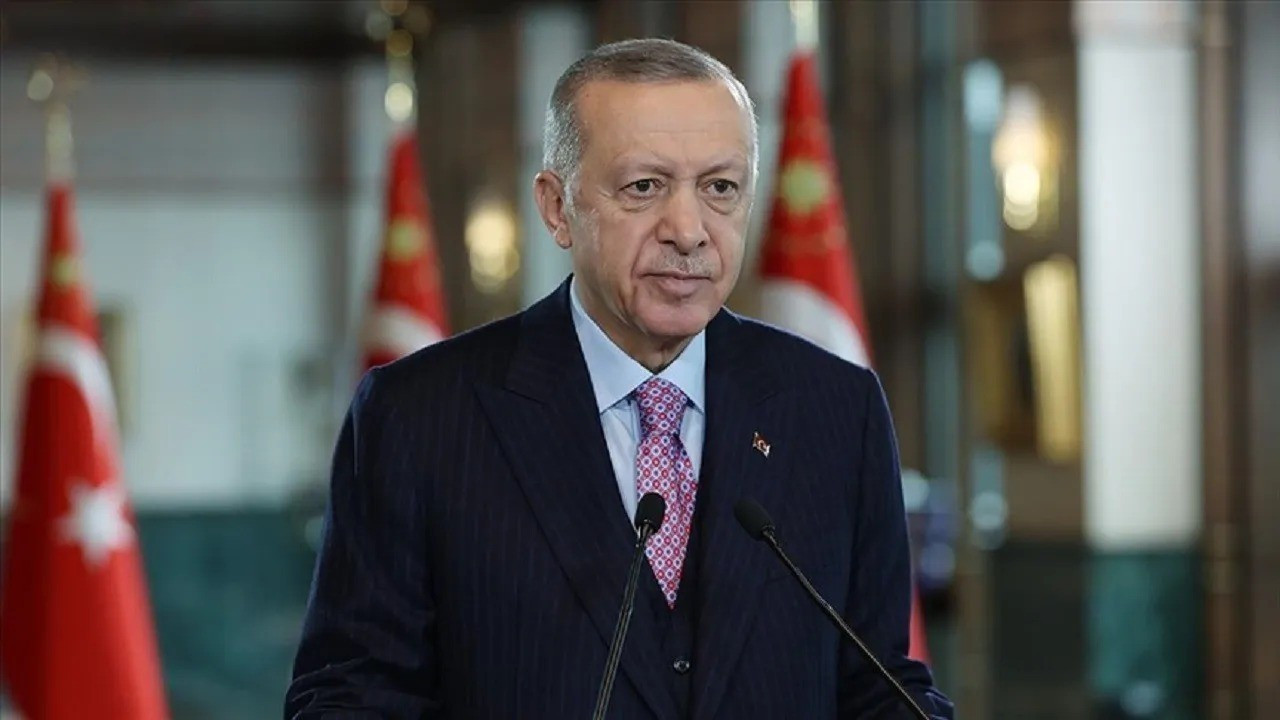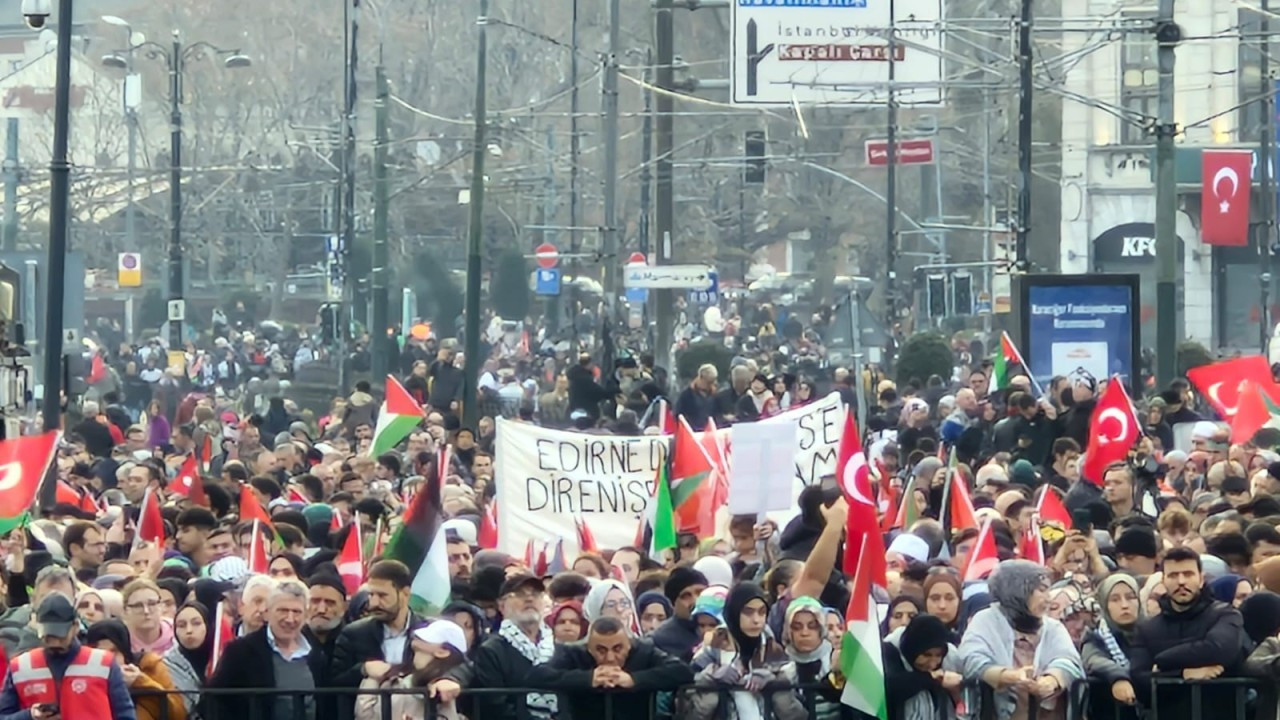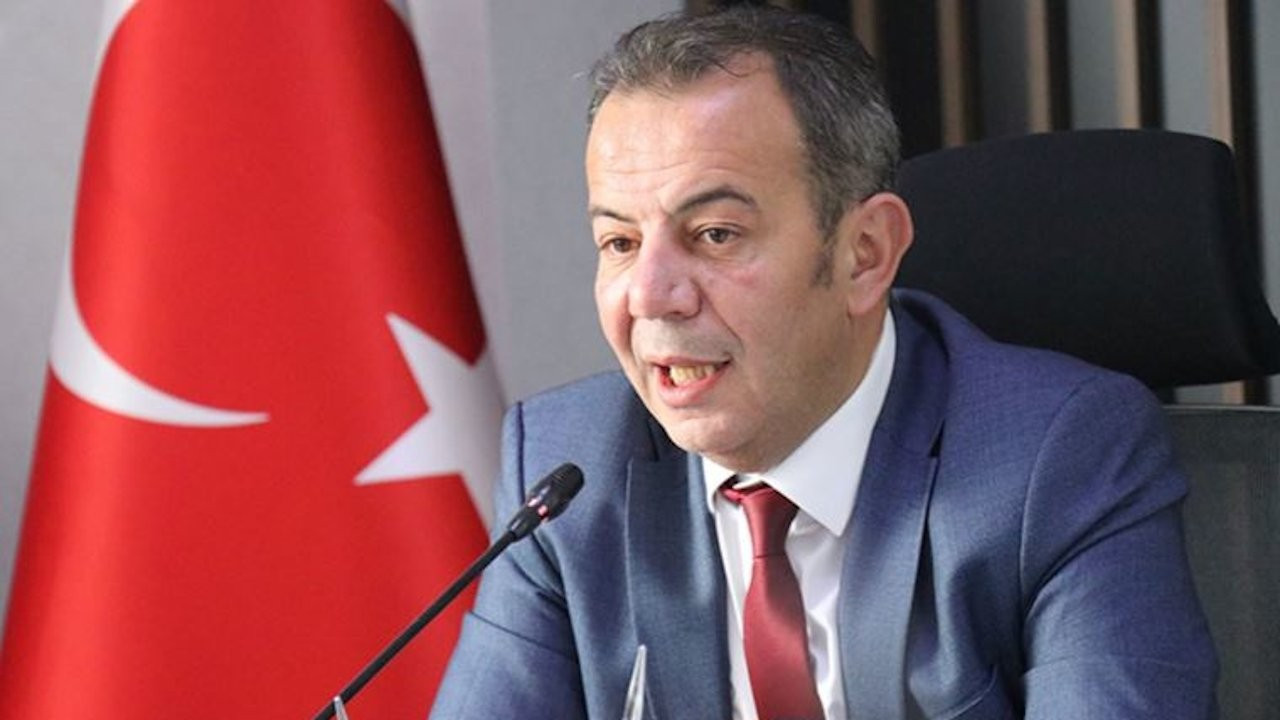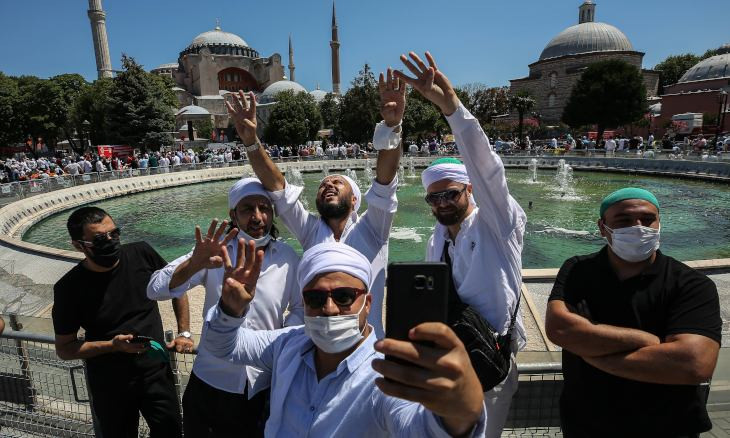AKP Spokesperson says against caliphate and regime change
Turkey’s ruling AKP Spokesperson Ömer Çelik has stated that they were against caliphate and regime change following the discussions initiated after a university student punched a man for carrying the "Tawheed" (Tevhid) flag, often associated with jihadists.
Duvar English
Turkey’s ruling Justice and Development Party (AKP) Spokesperson Ömer Çelik on Jan. 4 stated that they were against caliphate and regime change.
Çelik made the comments during a live program on Habertürk TV. “We do not have an agenda like the caliphate. If what is meant by this discussion is to demand regime change in Turkey, we will be against it. The regime and constitutional order of the Republic of Turkey is protected by the state,” Çelik said.
His comments came after the discussions initiated after university student Ege Akersoy punched a man with the “Tavheed” flag, associated with jihadists, who was returning from the Free Palestine march on Jan. 1.
“This is both ignorance and barbarism. What does the flag of the caliphate have to do with the word tawhid? A citizen is holding a flag that reads La Ilahe Illlalah Muhamadan Resullullah (There is no deity but God. Muhammad is the messenger of God). What does this have to do with the demand for regime change? There is no such flag as the flag of the caliphate. In whichever country the caliphate was in, the flag of that country was the flag of the caliphate,” Çelik added.
After the incident, some pro-Islamist groups called for the establishment of the caliphate, arguing it would unite the Islamic world and free Palestine. The row once again fueled polarization between secularists and Islamists in the country.
The university student Akersoy was arrested for punching the man.
Çelik also touched upon another polarizing issue, that is the diplomatic football crisis in Saudi Arabia.
The Galatasaray and Fenerbahçe teams refused to play the final match that was to take place on Dec. 29 in Riyadh after Saudi Arabian officials did not allow Turkish flags, and banners with images and remarks of Turkish Republic’s founder Mustafa Kemal Atatürk in the arena.
“If all the demands had been agreed upon in a protocol, there probably wouldn't have been this crisis. The issue suddenly turned into a debate about Atatürk. It was said that the National Anthem, the Turkish flag and Atatürk's picture and signature on the jerseys were not accepted. In fact, when you look at it, the National Anthem was accepted in the protocol. Atatürk came up later,” Çelik said, adding that the crisis showed the sensitivity of the citizens to the flag, the national anthem and Atatürk.
“I wish the (display of the) National Anthem, the flag and Atatürk had been declared at the very beginning. Everyone should learn from this and stick to the right protocols. There was a planning mistake here,” he added.


 Turkish court arrests student for punching man carrying 'jihad' flagDomestic
Turkish court arrests student for punching man carrying 'jihad' flagDomestic Turkey’s Erdoğan says Super Cup ordeal ‘sabotage backed by opposition’ Domestic
Turkey’s Erdoğan says Super Cup ordeal ‘sabotage backed by opposition’ Domestic Turkey's pro-gov’t youth organization holds rally for Palestine in Istanbul Domestic
Turkey's pro-gov’t youth organization holds rally for Palestine in Istanbul Domestic Turkish prosecutor launches investigation into Bolu Mayor's billboards insulting Saudi Arabian officialsDomestic
Turkish prosecutor launches investigation into Bolu Mayor's billboards insulting Saudi Arabian officialsDomestic Magazine owned by pro-gov't media group calls for establishment of caliphate in TurkeyPolitics
Magazine owned by pro-gov't media group calls for establishment of caliphate in TurkeyPolitics